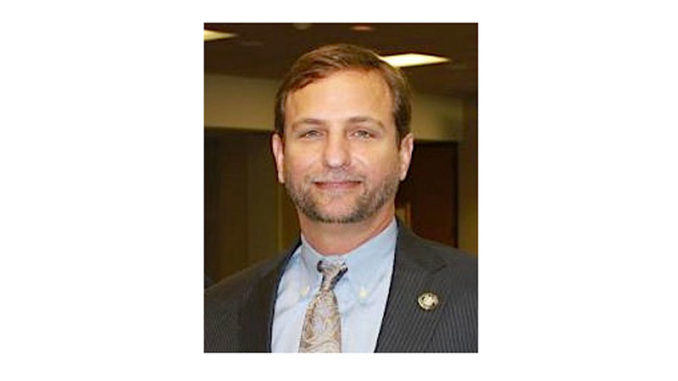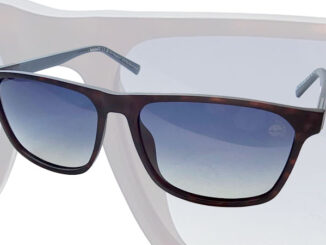
Former Fisheries Division head Pausina approved questionable purchases, auditors say
Louisiana’s legislative auditor found a lack of management oversight of funds and operations in the Department of Wildlife and Fisheries in the wake of the BP oil spill, including sampling operations in Venice that cost $2,796 per fish, more than $280,000 in clothing and uniforms with no uniform purchasing policy in place and a used $1.8 million airplane that could now cost the state more than $500,000 to repair.
Other audit findings include a $220,000 Catamaran used twice from 2012-16 that has cost $38,000 to maintain and repair, more than $54,000 in purchases by a Venice fish sampling team for equipment that is no longer in LDWF’s possession as well as two missing pistols, a missing rifle and a missing shotgun.
Robert Barham, now an assistant secretary in the Office of State Parks, was heading the agency during the time auditors say there was a lack of financial accountability. To see the complete audit report, click here. To see a summary of the full report, click here.
Auditors also found Venice team members purchased more than $340,000 in fishing and water sports equipment, including 225 rods and reels, 25 coolers, spear guns, scuba gear, a paddle board and several binoculars.
“The number of rods, reels, coolers and other items purchased appears to be disproportionate to the number of fish caught (1,091) and users (one team, usually consisting of three to five people) at any given time,” the audit report states. “For example, 225 rods and reels were used to catch 1,091 fish, or 4.8 fish per rod and reel.
“In addition, according to former members of the Venice team, many of the items, including scuba gear, a paddle board and blue marlin gear, were either not used and/or not needed.”
Auditors went on to say then-fisheries division head Randy Pausina ordered Andy Fischer, who served as director of Fisheries Management, to approve questionable purchases.
“Mr. Fischer was tasked with approving Mr. (Eric) Newman’s and other Venice team members’ credit card logs (and timesheets) each month and stated he felt he had no control over Mr. Newman or the team,” the audit report states. “Mr. Fischer indicated that when he would constantly question Mr. Newman’s submissions, … Pausina … would call him shortly after and instruct him … ‘to just approve it.’
“Email records confirm that requests and/or questions regarding purchases, inventories and program management sent to Mr. Newman were often forwarded to Mr. Pausina who then interceded on Mr. Newman’s behalf. According to Mr. Fischer, Mr. Pausina told him that the program being (run) out of Venice was (Mr. Pausina’s) and ‘to just approve it.'”
Other purchases by the Venice team noted in the final report include:
• $943,671 for boats: “In 2011 and 2012, LDWF spent $644,985 to purchase two used offshore boats and one new bay boat for the Venice team’s use,” according to the report. “Venice team employees also initiated or used their state credit cards for boat repairs, maintenance, storage and improvements totaling $298,686. According to members of the Venice team still employed at LDWF, Mr. Newman only allowed one boat to be utilized at a time, and they never operated two crews or two boats at once.
“Mr. Newman stated that one boat was necessary for offshore and another was necessary for inshore, or shallow waters. According to Mr. Newman, the third boat was a backup for the offshore boat; however, he stated this boat was not operational for at least eight months. It is unclear why this boat was not properly surplused.”
• $318,900 for lodging: “From April 2011 through April 2014, LDWF spent (on average) $8,511 per month to house LDWF Venice team employees in a houseboat and then a camp in Venice …,” auditors reported. “The Venice team employees also made purchases totaling $3,999 on their state credit cards that appear to be for repairs or improvements to the leased camp. An accurate log of camp users was not maintained.
“LDWF program manager Brett Falterman stated that once he became program manager in 2013, he made efforts to use the camp to support other LDWF groups, but Mr. Newman strongly resisted those efforts.”
• $187,086 for vehicles: “LDWF purchased three new trucks totaling $85,478 and a recreational vehicle (RV) … with a purchase price of $89,860 for Mr. Newman and the Venice team’s use,” the audit shows. “Venice team employees also made purchases on their state credit cards totaling $11,748 for vehicle repairs, maintenance, and parts. According to LDWF records, the RV was used by one team member in late 2011 and throughout 2012 (while the camp was also being leased).”
• $111,318 for groceries, clothing and other employee expenses: “Venice team employees spent a combined $42,463 ($1,180 per month) on clothing,” according to the auditors. “Many of these purchases were classified as ‘sampling supplies’ or ‘sampling gear;’ however, a detailed review of these receipts revealed that these purchases included shorts, shirts and sandals.
“These individuals also spent a combined $65,178 ($1,811 per month) on groceries and other household items and $3,678 for certain employees to obtain certifications for scuba diving and vessel operations.”
• $26,237 for cameras, computers and other electronics: “LDWF purchased cameras and camera equipment totaling $18,219. Neither LDWF’s program protocol nor the BP (memorandum of understanding) required photos to be submitted with tissue samples,” the auditors reported. “LDWF biologist Cijii Marshall stated that photos were never taken of the samples and that there was no official use for the cameras. According to Andy Fischer, director of Fisheries Management, Mr. Newman purchased these cameras for promotional and outreach work. However, LDWF employees stated that Ms. (Monique) Savoy saved the photos/videos on an external hard drive, which LDWF does not have.
“The Venice team also purchased several Apple iPads and computers totaling $8,018. However, according to the biologists who were responsible for recording and submitting the samples, they did not use any of these devices to process their samples. Mr. Newman stated the cameras were needed to document fish abnormalities and to post pictures on the LDWF website.”
• $7,411 for other programs: Some “Venice team credit card purchases appear to be for giveaway items for the Louisiana Saltwater Series and other LDWF initiatives but were classified as BP Tissue Sampling Program expenses ….,” auditors wrote in their report. “It should be noted that there was no promotional or outreach component to this program. However, as part of the written agreement with BP, $30 million was granted to the Louisiana Wildlife and Fisheries Foundation (LWFF) for a seafood marketing program to promote the results; therefore, any promotional and outreach expenses should have been incurred and paid by the LWFF.”
Newman resigned from the LDWF on Dec. 31, 2013. His attorney, Vincent F. Wynne Jr. said in a written response included in the final report that many allegations made by auditors about the Venice team were incorrect.
“The Venice team did not have the purchasing authority to buy boats or to pay for lodging and other high priced items,” Wynne wrote. “Such items went through the proper pruchasing procedures within the LDWF. For example, boats used by the Venice Team went through a full marine survey where they were appraised before purchased by the LDWF, and they are still in the possession of the LDWF ….
“The recreational vehicle cited in the Legislative Auditor’s report as having been purchased for Mr. Newman and the Venice Team was not purchased for or used by Mr. Newman and the Venice Team. As for food, the Venice Team was given written permission by the secretary of the LDWF to purchase groceries and household items as they did because it was far more cost effective than paying Mr. Newman and the Venice Team per diem.”
In a letter dated Nov. 1, Pausina also issued his response to what was then preliminary findings of the audit report.
“During my 23 years of service to the Louisiana Department of Wildlife and Fisheries, I could not be more proud of the work we performed during the Deep Water Horizon Disaster,” Pausina said. “This includes all levels of work done by everyone involved in the planning and implementing of a plan to an unprecedented event.”
Pausina said he didn’t specifically recall being notified about items going missing in Venice.
“There were at least four to five managers (including the director of Fisheries Operation and the fisheries administrator) between me and the Venice team. If there were occasions where a conflict rose to my level, I would speak to both parties and make a decision based (on) what sounded reasonable to me,” he wrote. “I do not recall nor is it stated that anyone came or emailed me with any real concerns like missing items. I also do recall the (department) head of property control personally checking this team’s inventory on site. To the best of my memory, she never submitted anything expressing concern to me.”
Former Secretary Robert Barham told LouisianaSportsman.com last month that audit investigators failed to understand the original memorandum of understanding between BP and the LDWF regarding seafood testing in the wake of the spill was just a starting point.
“They took this first MOU that they got as the end-all, be-all agreement that would never be changed, which was ridiculous,” Barham explained. “The first MOU said BP was going to pay us $18 million for seafood safety testing. And they list a goal there of 2,000 tissue samples, but tissue sampling is not the only part of what’s done in a seafood safety test.
“When you’re out in the Gulf, there’s much more to it than just catching a fish and cutting a chunk out of it to ensure seafood safety. You’ve got to be out there observing if you see any visible oil or sheen, you’ve got to see if you’re catching the right numbers of fish and are you catching the species you’d expect in a certain area? There are component parts to it above and beyond just tissue sampling.”
Barham also pointed out that while biologists collected about 1,000 samples, BP never ended up paying the full amount proposed in the original MOU.
“We only got $10 million because we proved the seafood was safe before we got to the full $18 million …,” he said. “We saved $8 million because we proved the seafood was safe.”
In a Nov. 1 letter to state Legislative Auditor Daryl Purpera, current LDWF Secretary Charlie Melancon said he has ordered a complete internal review of all existing department operations, contracts and agreements.
“This was done so that the LDWF can serve our state in an efficient manner, uphold ethical standards and conserve our resources,” Melancon wrote. “In furtherance of this internal review, LDWF has also engaged independent auditors and consultants to fully review all LDWF operations and management practices.”


